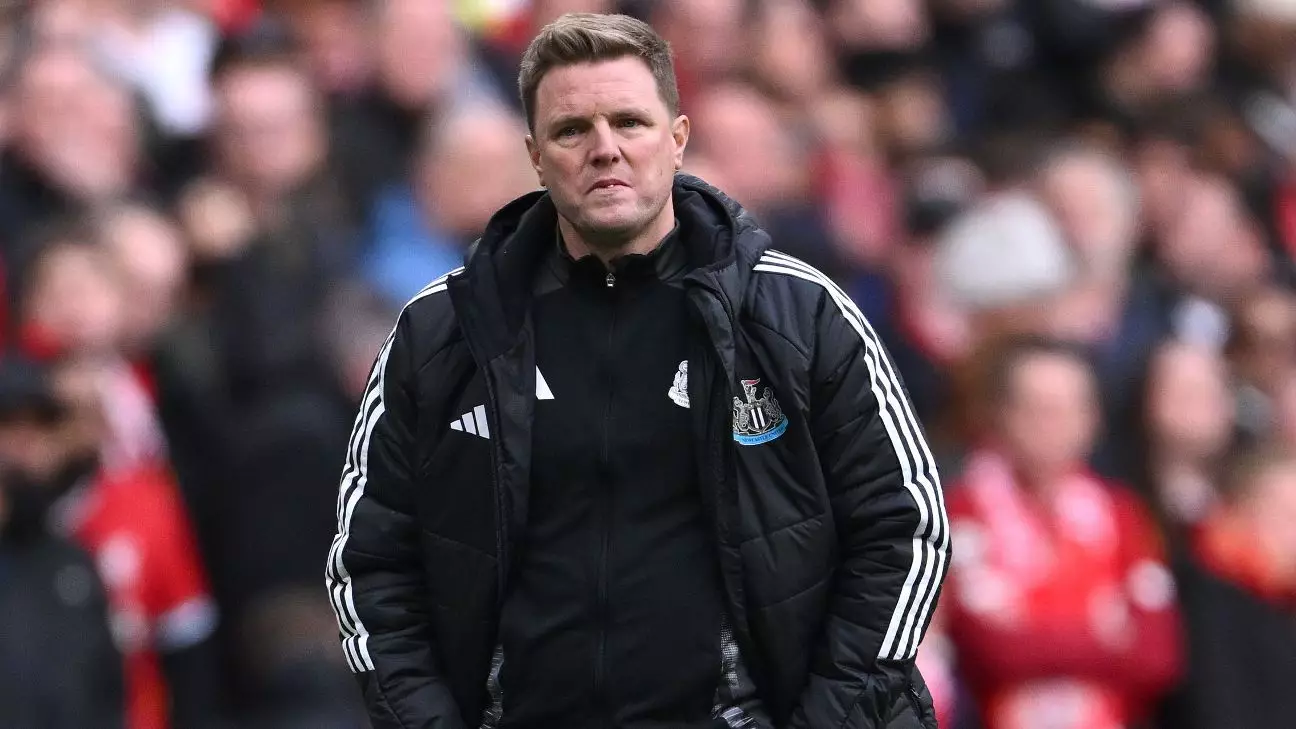Eddie Howe, the esteemed manager of Newcastle United, has found himself facing an unexpected hurdle: a diagnosis of pneumonia that has required hospitalization. With the excitement and anticipation of the Premier League season ramping up, the timing could not have been worse. Newcastle recently celebrated a significant victory over Manchester United, yet Howe’s absence from the touchline raises questions about the impact of his leadership on the team. While professional sports often rely on a group effort, the influence of a passionate and dedicated manager like Howe cannot be overstated. His recent announcement has led to an outpouring of affection and support from fans that speaks volumes about the empathy nurtured within the football community.
The Power of Community Support
Howe himself expressed gratitude for the “warm wishes” that have flooded in during this trying time. His acknowledgment of the support emphasizes a crucial aspect of sports—community. Fans extend their sentiments not just for the sake of their team’s success; it reflects a deeper bond that transcends mere loyalty. This connection is essential for athletes and coaches alike, providing a foundation of encouragement even when faced with personal challenges. It is heartening to see that the spirit of the game thrives beyond the pitch, fostering relationships that are grounded in mutual respect and well-wishing.
The Role of Leadership During Crisis
In the absence of Howe, assistant coaches Jason Tindall and Graeme Jones are set to take the reins for the upcoming matches. While they undoubtedly bring their own strengths to the table, the imprint of Howe’s leadership style may linger. His approach to management is not just tactical; it is emotional and motivational. The resilience he demonstrates is reflected in how his team adapts, playing with both strategy and heart. During times of adversity, the strength of the coaching staff can have a profound impact on how players respond, showcasing their own tenacity and sportsmanship.
A Personal Touch in Professional Sports
In his statement, Howe took the time to commend the NHS and hospital staff involved in his care, an indication of his character that extends beyond the football pitch. This moment of humility serves as a reminder of the human side of professional sports—an industry often characterized by its cutthroat nature. Howe’s reflections highlight the importance of kindness and gratitude, reminding everyone that behind every game, every strategy, and every win, there are individuals who are just as human as the fans supporting them.
The Significance of Recovery in Sports
Eddie Howe’s current situation shines a light on the often-overlooked necessity of recovery—both physical and emotional—in sports. Coaches often push themselves to the limit for their teams, frequently neglecting their health in the process. Howe’s diagnosis serves as a wake-up call, not just for him but for everyone involved in high-pressure environments: the health of the mind and body should occupy prime importance. The narrative surrounding his recovery will undoubtedly resonate throughout the club, setting a precedent that encourages players and staff alike to prioritize their wellbeing while chasing their dreams on the field.

